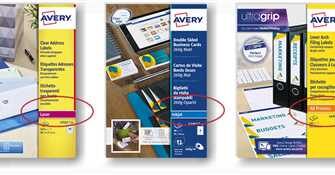
If you’re a carpet owner, you might have thought about selling carpets yourself. Well, this is a practical and must-have business because the demand for carpets is always high. With the right management and research, you can earn a good amount of money in this market.
First and foremost, you must consider your target customers. Are you fitting into the local market trends? Are you offering something that your competitors and local shops don’t have? If not, then it’s time to do some research and think about what you can offer that sets you apart from others.
Next, you need to think about the practical issues of starting a carpet business. Depending on the type of business you want to run, you might need a rented shop or you can start your business from home. Either way, you will need tools for estimating and cleaning carpets, plus a good association with local carpet suppliers.
When starting a carpet business, you must be prepared to work long hours. Sometimes, you might have to visit customers after your normal working hours, because this is when many people are available. Don’t forget to consider the housing market trends, as people often change carpets when they move into a new home.
It’s important to have a well-planned process in place for carpet fitting. A good initial visit to the customer’s home will help you understand their needs and preferences. From there, you can provide a reliable estimation and offer the right type of carpet that suits their requirements.
In the carpet business, customer satisfaction is everything. You must provide exceptional customer service to build a loyal customer base. Always look for ways to help customers and consider their individual needs.
Starting a carpet business can be a rewarding experience. With the right planning and management, you can earn a good income while helping customers beautify their homes. So, if you’ve been thinking about starting a carpet business, don’t delay any longer. The time is now!
- Starting a Carpet Cleaning Business 6 Must-Have Tools
- Research your target market
- Estimating demand
- Customers
- Domestic customers
- Work for other businesses and organizations
- Establishing the level of competition
- Research current trends plus legal and tax issues
- Training Initial Practical Experience
- Consider your work rate
- Non-productive time
- Shop hours
- Conclusion
- Video:
- How to start a Carpet Cleaning Business
Starting a Carpet Cleaning Business 6 Must-Have Tools
Starting a carpet cleaning business can be a lucrative venture. With the right tools and knowledge, you can establish a successful business in no time. Here are six essential tools you should consider having:
- 1. Carpet Cleaning Machine: A high-quality carpet cleaning machine is a must-have tool for any carpet cleaning business. Whether bought or rented, this machine will be your main workhorse in deep-cleaning carpets efficiently.
- 2. Domestic Carpet Cleaning Solutions: Invest in a range of domestic carpet cleaning solutions that are safe and effective to use on different types of carpets. A pre-treatment solution is also essential to tackle tough stains and spills.
- 3. Cleaning Tools and Equipment: Besides the carpet cleaning machine, you will need various cleaning tools such as brushes, scrubbers, and upholstery cleaners. These tools will help you clean specific areas and surfaces effectively.
- 4. Vehicle or Transport: Depending on the size of your business, you might need a vehicle or transport to carry your equipment and supplies to your clients’ locations. Consider the logistics and cost involved in transporting your tools and supplies.
- 5. Business Management Software: To streamline your operations and keep track of your clients and appointments, invest in business management software. This software will help you stay organized, schedule appointments, manage invoices, and track your financials.
- 6. Safety Equipment: Always prioritize safety when working with cleaning chemicals and equipment. Invest in personal protective equipment (PPE) such as gloves, goggles, and face masks to ensure the well-being of both your employees and clients.
By having these essential tools, you can provide top-notch carpet cleaning services to your customers. Remember to research your local market and competitors before starting your carpet cleaning business. Consider offering additional services, such as carpet repair or tile cleaning, to stay competitive in the market.
Furthermore, join professional cleaning associations and attend training sessions to enhance your skills and stay updated with the latest industry trends. Building relationships with other businesses, such as real estate agencies or interior designers, can also help you secure more clients and expand your customer base.
In conclusion, starting a carpet cleaning business requires careful planning and the right tools. By investing in the essential tools mentioned above and providing excellent customer service, you can establish a successful carpet cleaning business with a bright future ahead.
Research your target market
Before starting a carpet business, it is very important to research your target market. This step is crucial as it helps you understand your potential customers and their needs. Conducting thorough research will provide you with valuable insights that you can utilize to make informed business decisions.
When conducting market research, there are many tools and techniques at your disposal. Consider using surveys, focus groups, and interviews to gather information directly from potential customers. These methods can help you gain a better understanding of the types of carpets customers are looking for, their preferences, and the price range they are willing to pay.
Additionally, it is important to research the existing competition in the market. Look at other carpet businesses in the local area to determine their pricing, offerings, and target audience. Understanding your competitors will help you evaluate the level of competition you will face and allow you to differentiate yourself with unique selling points.
Furthermore, it is essential to consider the housing market when researching your target market. Determine whether your target customers are homeowners or renters, as this will impact the type of carpets they may be interested in. For example, homeowners might be more willing to invest in high-quality, long-lasting carpets, while renters may prefer more affordable options with easy installation.
Depending on your findings, certain marketing strategies may be more effective than others. If you are targeting homeowners, you may consider advertising in home improvement magazines or partnering with local contractors and builders. On the other hand, if your target market consists mostly of renters, you could focus on online marketing platforms and offer flexible rental options.
Finally, it is also important to take legal and regulatory considerations into account. Research any licensing or permits needed to operate your carpet business, as well as any zoning restrictions or building codes that may apply. This will ensure that you start your business on the right track and avoid any potential legal issues in the future.
In conclusion, thorough research of your target market is a must-have step before starting a carpet business. Understanding your customers, competition, and the housing market will help you make informed decisions, establish a strong market presence, and earn a competitive edge. Take the time to research and plan carefully, as this will set the foundation for your business’s success.
Estimating demand
One of the first things to consider when starting a carpet business is estimating the demand for your products and services. The demand for carpet can vary depending on the type of area you are targeting, such as residential or commercial. It’s essential to assess the competition in the market and consider the existing supply of carpet stores in your area.
Market research will play a vital role in estimating the demand for your carpet business. You can begin by exploring the local market and understanding the preferences and needs of potential customers. Consider the type of carpet services that are in high demand, such as carpet fitting, cleaning, or repairs.
Taking into account factors such as the population, type of buildings, and local associations or organisations related to the carpet industry can help you gauge the demand. Visiting existing carpet stores and talking to their owners or managers can also provide valuable insights into the market dynamics and customer preferences.
In addition to market research, you should also look into the practical aspects of managing and running a carpet business. For instance, estimating the amount of money required to establish your business, including the cost of tools, building rent, and marketing expenses. You may also want to consider the tax and logistics issues that you will encounter.
Offering additional services like delivering carpet samples to customers’ homes or working outside regular business hours can give you an advantage over the competition and attract more clients.
Furthermore, building a strong online presence and marketing your carpet business effectively will help increase awareness and attract potential customers. You can establish a website, utilize digital marketing techniques, and perhaps join professional carpet associations to gain credibility.
Remember that customer satisfaction is crucial for generating repeat business and gaining positive word-of-mouth. Provide excellent customer service, meet your clients’ expectations, and address any issues that may arise promptly. These factors will contribute to long-term success and a loyal customer base.
In summary, estimating the demand for your carpet business involves a comprehensive analysis of market conditions, target audience, and competition. By conducting thorough research and implementing effective marketing strategies, you can earn a respectable income and establish a successful carpet business.
Customers
One of the key factors in starting a carpet business is understanding your target customers. Identifying your potential clients will help you tailor your products and services to their needs. In the carpet business, your customers will mostly be homeowners and businesses in need of carpeting solutions for their space.
When targeting homeowners, it is important to look at trends in the market and understand what types of carpets are in demand. Perhaps, some customers might prefer practical and long-lasting carpets for high-traffic areas, while others might look for more luxurious options for their living rooms or bedrooms.
For businesses, you may have to consider different factors. Commercial clients might have specific requirements for durable carpets that can withstand heavy foot traffic. Additionally, you might encounter clients who need carpet fitting services for specific spaces, such as hotels, offices, or retail stores.
Before opening your carpet business, you’ll want to research the competition in your area. Identify other carpet stores and businesses that offer similar products and services. Analyzing their pricing, customer reviews, and promotional strategies can help you position your own business in the market.
Another key aspect of attracting customers is to establish associations with organisations that might help promote your business. Consider joining local associations related to the flooring industry, which could provide networking opportunities, training, and exposure to potential clients. Additionally, associations might offer resources and support to aid in the growth and development of your carpet business.
Once you have a clear understanding of your customers’ needs and the competition, you can develop a comprehensive marketing strategy to target your audience effectively. This might involve online and offline advertising, creating an appealing website, offering samples for potential customers to touch and feel, and leveraging social media platforms to showcase your work.
In addition to selling carpets, you can also provide other services that complement the installation process. For example, you might offer carpet cleaning services or maintenance packages to build long-lasting relationships with your clients.
Lastly, logistics and supply chain management are must-have skills for a carpet business. You will need to manage orders, track inventory, and ensure timely delivery of products. Building relationships with suppliers and staying updated on new carpeting trends and technologies will help you cater to your customers’ evolving needs.
In conclusion, understanding your customers, their needs, and the competition is essential for the success of your carpet business. By offering a wide range of carpets, providing quality services, and staying ahead of industry trends, you can earn the trust and loyalty of your clients while growing your business in a practical and profitable manner.
Domestic customers
When starting a carpet business, it is important to consider targeting domestic customers as they can be a significant source of revenue. Whether you are selling carpets for housing or renting, there is a high demand for quality carpeting in both scenarios.
Many potential domestic customers are often looking to upgrade their existing carpet or simply refresh the look and feel of their homes. This presents a great opportunity for new carpet businesses to offer their services and products.
Before opening your carpet business, it is essential to research the needs and preferences of your target domestic customers. This research can help you determine what type of carpets, colors, patterns, and sizes are in high demand. Additionally, understanding the trends in the housing market can help you anticipate future customer needs and tailor your offerings accordingly.
Legal issues such as licensing and permits should also be addressed before starting a carpet business. Consult with local authorities and business associations to ensure compliance with all regulations.
Providing practical services like estimating the amount of carpet needed and offering fitting services can give your carpet business an edge over the competition. Training your staff to work with different types of carpets and using the right tools and techniques is essential to deliver quality work to your domestic customers.
Cleaning services can also be a valuable addition to your carpet business. Many domestic customers are in need of professional carpet cleaning, and offering this service can help you earn additional revenue.
When targeting domestic customers, it is important to have a presence in the community. Consider partnering with other local businesses, such as home improvement stores or interior designers, to expand your customer base. Participating in local events and advertising through various marketing channels can also help raise awareness of your carpet business among domestic customers.
Building a positive reputation is crucial in attracting domestic customers. Providing excellent customer service, delivering high-quality products and services, and meeting deadlines are essential for achieving customer satisfaction and building long-term relationships.
Overall, domestic customers can be a lucrative market for your carpet business. By understanding their needs, providing practical services, and establishing a strong reputation, your business can thrive in the competitive carpet industry.
Work for other businesses and organizations
If you are considering starting your own carpet business, it might be worth working for other businesses and organizations in the industry before taking the leap. This will give you valuable experience and insights into how the carpet business operates.
By working for a carpet business, you can learn about their day-to-day operations, management techniques, and customer service practices. You will also get a chance to see firsthand how they handle different types of carpets and flooring.
Working with other businesses can help you establish connections and build relationships within the industry. You can learn from their successes and failures and apply that knowledge to your own business. It is also a great opportunity to learn about the current trends and demands in the market.
When working for other businesses, take the opportunity to observe their marketing and promotional strategies. Look at how they target their customers and the types of services they offer. This can give you ideas on how to position your own business and stand out from the competition.
It is important to look for a business or organization that aligns well with your goals and values. Consider whether you want to work for a small local business or a larger firm. Think about what type of carpet services you want to specialize in, such as cleaning, fitting, or estimating.
Working for another business can also help you understand the financial side of the carpet industry. You can learn about pricing and the various costs involved in running a carpet business, such as supply and rental fees. You will also get a sense of how much to charge for your services and what the market rate is.
During this time, it is essential to take notes and learn from the experiences of others. Pay attention to the challenges they face and how they overcome them. This knowledge will be valuable when you start your own carpet business.
In conclusion, working for other businesses and organizations in the carpet industry before starting your own can greatly benefit you. It will provide you with valuable knowledge and experience, help establish connections, and give you a competitive edge in the market.
Establishing the level of competition
When starting any business, it is essential to research and analyze the market to understand the level of competition you will be facing. This step is particularly crucial for a carpet business as it will help you to gauge potential demand for your products and services, as well as identify any gaps or issues in the market.
One practical tool that can help you in establishing the level of competition is to visit local carpet firms and observe their operations and customer demand. By spending a few days working with them, you can gain invaluable experience and insights into the challenges and opportunities that lay ahead.
You should also consider reaching out to industry associations and organizations for advice and support. They can provide guidance on market trends, marketing strategies, and practical tips for starting and running a carpet business.
Another important aspect to assess is the type of competition you will be facing. The carpet market caters to both domestic and commercial customers, so you need to determine whether you will be solely focusing on residential clients or also offering your services to businesses. Additionally, competing with large, well-established firms may require different approaches compared to starting a small, niche carpet fitting business.
It is crucial to establish the pricing for your carpets and services. You should research the rates offered by other carpet businesses in your area and determine how your pricing model will fit into the market. Consider factors such as the amount of work involved, including the hours spent on fitting or installation, as well as any additional services you will provide, such as carpet cleaning.
Furthermore, understanding the local housing trends and demand for carpets is essential. Research the housing market in your area, including the number of new housing projects and renovations, to determine the potential customer base and demand for your products. This information will help you estimate the amount of business you can expect and plan your marketing and growth strategies accordingly.
Lastly, it is important to consider the non-productive, yet essential, aspects of starting a carpet business. This includes examining the legal and tax requirements, securing a suitable location for your business (rented or owned), and acquiring the necessary tools and equipment. By taking care of these initial factors, you can ensure a smooth opening and focus more on the long-term success and growth of your business.
In conclusion, establishing the level of competition is a crucial step when starting a carpet business. Through research, market analysis, and practical experience, you can gain valuable insights into the market, identify potential issues, and align your business strategies accordingly. By understanding the competition, the demand for your products and services, and the local housing trends, you can position your business to effectively serve customers, earn profits, and thrive in the industry.
Research current trends plus legal and tax issues
When starting a carpet business, it is important to research the current trends in the market to stay ahead of the competition. Keeping up with the latest trends will help you offer products and services that are in demand and meet the needs of your clients.
Visit carpet shops and home stores to get an initial idea of the trends in the market. Look at the types of carpets and flooring options that are popular and the supply available. You might also consider taking samples of popular carpets to see the quality and design firsthand.
Researching trends is not just about the products themselves, but also about the logistics of the carpet business. Consider the processes involved in the fitting and installation of carpets, as well as the management of non-productive days. Understanding these logistical issues can help you better plan and estimate the time and resources needed.
In addition to current trends, it is crucial to research the legal and tax issues associated with starting a carpet business. This will ensure that you comply with all necessary regulations and avoid any legal complications. Contact local tax firms or associations specializing in carpet or building materials to get the right information on tax planning and associated legal issues.
Marketing and advertising are also important considerations when researching trends. Look into the marketing strategies used by successful carpet businesses and consider how you can adapt them to fit your own business. Understanding the marketing needs of your target market will help you reach your potential clients more effectively.
Finally, consider joining industry associations or networking with other carpet businesses. These associations can provide valuable resources and support as well as insights into industry trends and best practices. Learning from others who have experience in the carpet business can save you time and help you avoid common pitfalls.
In conclusion, researching current trends and legal and tax issues is a crucial step in starting a carpet business. By staying abreast of the latest trends, understanding logistical challenges, and ensuring legal compliance, you can position your business for success in a competitive market.
Training Initial Practical Experience
When starting your carpet business, it is crucial to have the right training and initial practical experience. This will ensure that you are well-prepared to meet the demands of your clients and compete effectively in the market.
One option for training is to work with an established carpet business in your local area. By doing so, you can learn from experienced professionals who have been in the industry for a long time. They can teach you the ins and outs of the business, from carpet fitting to management and logistics.
Another option is to consider training programs offered by carpet industry associations. These programs usually provide comprehensive training on various aspects of the business, such as marketing, sales, and customer service. They may also offer courses on business management and legal issues, which can be helpful in establishing and running your own business.
Additionally, conducting thorough research on current market trends and customer needs is essential before establishing your business. This will help you understand the type of products and services that are in demand, as well as the competition you may face. It is also important to consider the target market and tailor your offerings accordingly.
Before opening your business, it is advisable to gather as much practical experience as possible. This can be done by working in the industry, possibly as an employee or by offering your services on a freelance basis. By doing so, you can gain firsthand knowledge of the carpet fitting process, deal with various issues that may arise, and build a portfolio of satisfied clients.
In terms of logistics, you will need to carefully consider your supply chain and ensure that you have a reliable source of high-quality carpet samples. You may need to establish relationships with suppliers and negotiate favorable terms to ensure a steady supply of materials.
It is also important to consider the financial aspects of your business. This includes setting competitive prices that cover your expenses and allow you to earn a profit. Additionally, you need to be aware of any tax obligations and ensure that you comply with all legal requirements in your area.
Furthermore, marketing and advertising are crucial for attracting customers to your carpet business. Utilize both online and offline channels to reach your target audience effectively. This includes creating a professional website, using social media platforms, and leveraging local advertising opportunities.
Finally, as the owner of a small carpet business, you will need to wear many hats. This means taking on responsibilities such as sales, customer service, and business development. It is essential to stay organized and have a well-defined plan for managing your time and resources to avoid non-productive days.
In conclusion, training and gaining initial practical experience are important steps in establishing a successful carpet business. By working with industry professionals, conducting proper research, and gaining hands-on experience, you can position yourself well in the market and meet the needs of your target clients.
Consider your work rate
When starting a carpet business, it’s important to consider your work rate. How much money do you want to make and how well do you work? These are important questions to consider when establishing your business.
To start, you’ll need to determine the supply and demand of carpets in your local area. Consider the current trends in flooring and what types of carpets are in high demand. This will help you estimate the initial amount of money you might need to invest in establishing your business.
You’ll also need to think about the amount of work you’re willing to take on. Are you comfortable fitting carpets in homes or would you prefer to work on larger commercial projects? Some business owners might choose to offer both types of services to cater to a wider range of customers.
Consider whether you’ll be working from home or if you’ll need to rent a building. Keep in mind the associated costs and legal requirements for both options. Perhaps joining a local association or networking with other carpet stores can help guide you in the right direction.
Marketing is another crucial aspect of your business. Consider what marketing tools and strategies will help you reach your target audience. Will you offer samples or utilize a flooring planner to assist your customers in choosing the right carpet for their needs?
It’s also important to consider your work rate in terms of fitting carpets. Certain types of flooring might take longer to install, and you’ll need to factor in the time it takes to complete each job. Having the necessary tools and experience can help you work efficiently and meet the demands of your customers.
Another important consideration is the amount you’ll charge for your services. Take into account your expenses, such as the cost of materials, labor, and any associated taxes or fees. Make sure you price your services competitively while still ensuring your business is profitable.
Finally, don’t forget to consider your non-productive hours. Running a carpet business involves administrative tasks such as invoicing, bookkeeping, and contract management. Make sure you account for these tasks in your work rate and pricing to ensure you’re not working for nothing.
In conclusion, starting a carpet business requires careful consideration of your work rate. Analyze the market, estimate your initial investment, determine your level of work, and consider your marketing strategies. By doing so, you can establish a successful carpet business that meets the needs of your customers and helps you achieve your financial goals.
Non-productive time
When starting a carpet business, it’s important to be aware of the amount of non-productive time that can be involved in running a successful venture. This time refers to tasks and activities that are necessary for the business but do not directly contribute to the production or sale of carpets.
One aspect of non-productive time management is taking charge of the administrative tasks that come with running a business. This includes handling paperwork, managing finances, and keeping track of inventory. By properly managing these tasks, you can help ensure that your business runs smoothly and efficiently.
Another important aspect of non-productive time is marketing and networking. It’s important to dedicate time to promote your carpet business and make connections within the industry. This may involve attending local association meetings, reaching out to stores and other businesses for potential partnerships, and participating in trade shows and events.
Logistics and planning are also key areas of non-productive time. This may include researching suppliers, arranging for the delivery of carpets and flooring materials, and coordinating the installation process. It’s important to take the time to plan your business operations effectively to ensure smooth and efficient workflows.
Additionally, non-productive time can include training and development. As a carpet business owner, it’s important to stay current with industry trends, new carpeting technologies, and installation methods. This may involve attending training sessions, workshops, and industry conferences.
Research is another time-consuming task that falls under non-productive time. You may need to research the local market demand for your services, as well as the competition in the area. This research can help you identify potential customers, determine pricing strategies, and develop effective marketing campaigns.
Another time-consuming task is the initial visit to clients’ homes or businesses. This visit is important for taking measurements, assessing the needs of the space, and providing accurate estimates for the cost of the project. This step is crucial in securing contracts and ensuring customer satisfaction.
In addition to the tasks mentioned above, non-productive time may involve building relationships with contractors, tax planning and compliance, and other administrative duties. It’s important to allocate the necessary time for these tasks to have a well-rounded and successful carpet business.
While non-productive time can sometimes feel overwhelming, it is a necessary part of running a carpet business. By dedicating the time and resources to these tasks, you can help ensure the long-term success and profitability of your venture.
Shop hours

When it comes to running a carpet business, it’s important to establish clear shop hours that align with the demands of your target market. Depending on your location and the type of carpets you are selling, the shop hours may vary. It’s crucial to do thorough research about the local market trends, as well as the working hours of other carpet stores in the area. This will help you determine the optimal shop hours for your business.
First and foremost, consider the practical aspects of running a carpet business. Shops that offer carpet fitting and other related services would generally have longer shop hours compared to those that only sell carpets. This is because fitting carpets requires more time, tools, and possibly samples for customers to choose from.
Existing carpet businesses in your area can provide valuable insights into the shop hours that work best for their customers. Visit these stores and speak with the owners or staff to understand their experience and whether their current shop hours are successful. This information can help you make an informed decision about your own shop hours.
Another important factor to consider is the amount of demand for carpet in your market. If there is a high demand, you might need to extend your shop hours to accommodate more customers. On the other hand, if the demand is low, you may choose to have shorter shop hours to fit the market needs.
Legal considerations should also be taken into account when determining your shop hours. Make sure to check with local organisations and authorities to ensure that your chosen hours comply with the regulations in your area.
Additionally, you should estimate the amount of time needed for tasks such as logistics, marketing, and floor fitting. This will help you determine whether your current shop hours allow for enough time to complete these essential business activities.
In conclusion, the shop hours for your carpet business should be well thought out and carefully planned. Consider the demand for carpets in your area, visit existing shops to gather insights, and factor in the practical aspects of running a carpet business. By taking these things into account, you can establish shop hours that meet the needs of your customers and help your business thrive in a competitive market.
Conclusion
In conclusion, starting a carpet business is a practical and potentially profitable venture for those with the appropriate skills and experience. By conducting thorough market research and understanding the demand for different types of carpets in the local area, entrepreneurs can target their businesses towards specific customer segments and carve out a niche within the market.
Before starting the business, it is essential to consider the initial logistics, such as locating a suitable rented shop or working from home. Estimating the start-up costs, including tax and legal fees, is also crucial for financial planning. Depending on the level of demand and competition, it may take some time to earn a significant profit.
When setting up a carpet business, obtaining knowledge and training in carpet fitting, cleaning, and floor management is a must-have. Visiting various carpet shops and associations can provide valuable insights into suppliers, tools, and practical tips for running the business effectively. Additionally, having samples of different carpet types can help customers visualize the end result and make their decisions easier.
Furthermore, building a strong customer base and maintaining positive relationships with them is vital for the success of the carpet business. Providing excellent customer service, quick response times, and reliable after-sales support can help differentiate the business from competitors and encourage repeat business. Marketing efforts should also target both domestic and commercial customers to expand the market reach.
In sum, starting a carpet business requires careful planning, research, and hard work. Entrepreneurs in this field must continuously stay updated on the latest trends, carpet types, and fitting techniques to meet the demands of customers. With the right tools, training, and a market-centric approach, starting a carpet business can be a rewarding venture in the long run.









